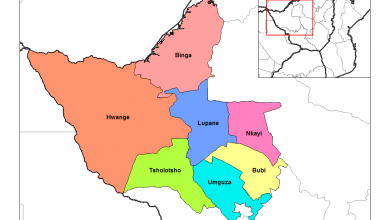
The government has received considerable criticism from various quarters – activists, experts and health workers – for not having an effective national plan to deal with the coronavirus pandemic who pointed out that the spike in cases and deaths was a sign that the lockdown was ineffective.
As of January 20, 2021, Zimbabwe recorded 773 new Covid-19 cases and 54 deaths in one day, bringing the national total to 29 408 confirmed cases and 879 deaths.
Following the recent death of two ministers (Minister of Foreign Affairs and International Trade, Dr Sibusiso Moyo and Manicaland’s Provincial Affairs and Devolution Dr Ellen Gwaradzimba), the government announced all its departments would work with a 10 percent staff except for the Ministry of Health and Child Care.
The order comes into effect from this Wednesday until February 3, 2021, a move that would likely affect the provision of services to the public.
Ibhetshu LikaZulu, Secretary General, Mbuso Fuzwayo, said an effective strategy was required to curtail the increase in infections and deaths.
“We are saddened by the lack of government seriousness in response to this global pandemic. As we put it on record recently, the government strategy is elitist and must be revised. We are vindicated for saying this because our analysis proves that an elitist approach to the pandemic will not bear positive results,” he said.
Fuzwayo called upon the government to seriously consider shutting down travels from and to the capital immediately, in order to contain the virus and in the interest of national security.
“It appears Harare is hugely contaminated with the virus. We are persuaded that movement to and outside will be one of the ways that will spread the virus, outstretching the limited resources available,” said the activist.
Fuzwayo added: “We also call upon the government to consider decongesting prisons, a congested prison maybe a breeding ground for the spread of the coronavirus, we need to spare more lives. Finally we reiterate our position that these elitist measure put by the government will bring the nation to grief and must be urgently revised.”
Community Working Group on Health (CWGH), Executive Director, Itai Rusike advised the government to review its health staff establishment to be able to handle the scourge.
“The government must lift the freeze on employment of health workers as the country has a lot of qualified nurses and other health professionals sitting at home when our health institutions are poorly staffed,” he said.
Rusike, a public health activist with almost 20 years experience, noted that the increasing infections daily indicated the need to scale up contact tracing to manage spread of Covid-19.
“There is a need to equip community health workers in various urban communities or village health workers in rural areas to support contact tracing efforts as trusted sources of information for community literacy,” he said.
“We also need to value, acknowledge and recognise the role of the community health workers responding to Covid-19 by providing them with adequate and suitable Personal Protective Equipment, tools of the trade such as uniforms and bicycles, better stipends and the risk allowances just like what is g given to their counterparts – the mainstream health workers.”
He stressed that if contact tracing was not enhanced or improved there was “risk of losing control of Covid-19’s response hence exposing a lot more people to infection.”
The third vice president of a regional lobby group, the International Coalition Against Coronavirus (ICAC) based in Zimbabwe, Max Mkandla said without complementary measures but relying on curfews to fight the pandemic was ineffective.
“Announcing a curfew without explaining the reasons why it will scientifically help will not stop the spread. Does the disease stop moving during the night? We want to see measures that boost the capacity of health workers who come into contact with patients. What are the precautions that the government is taking to improve health service delivery in light of these increasing cases, some who may need hospitalisation?” he said.
Mkandla advised the government to consult experts before imposing lockdown orders on people who were suffering.
“People struggle to access food, especially now with the lockdown in place. Another cause of concern is school closures and parents are worried about children stuck at home. There should be means to open schools or come up with certain shifts to empower our learners. Every step to be taken by the government must go via parliament for consensus on how to solve the pandemic and on that note, authorities must avail adequate information on the vaccine,” he said.






